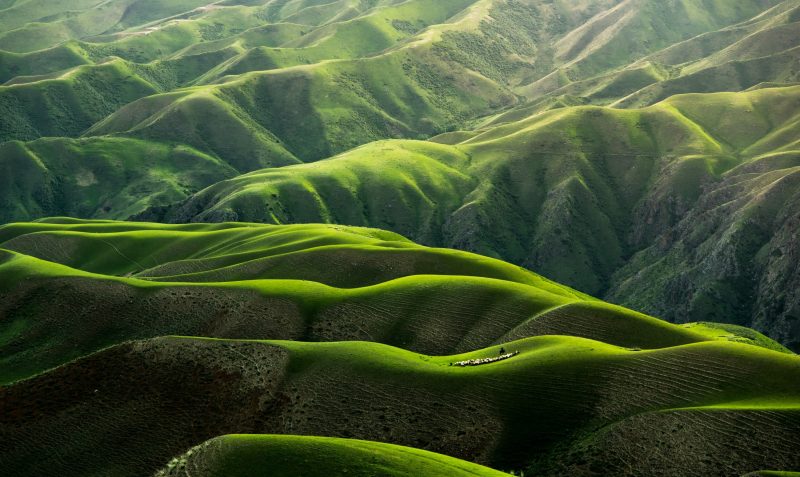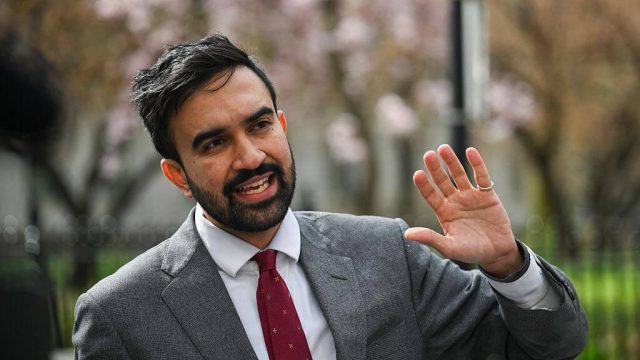
We all depend on the natural world for our food, water, air - our very survival. So why do our economies place so little worth on the ecosystems and wildlife that sustains us? Our new Policy Director, Najma Mohamed, reflects on two inspiring events which gave voice to nature's value.
Nature, on which all life depends, is in peril. We have known this for some time as we wring out the drops from our tired soils, dried rivers and empty oceans. The world has started to galvanise around the climate crisis. But how can we bring the same vision, energy and commitment, drawing on all the threads, to rewrite our story, one in which people and Nature thrive?
At a recent conference, held on the thirtieth anniversary of the Blueprint of a Green Economy, Anil Markandya - one of the original authors of the blueprint - lamented that 30 years on, environmental values were still not central to public policy-making. The blueprint had been written to develop policies consistent with the concept of sustainable development. The conference largely convened a community of environmental economists to reflect on the extent to which Nature had been integrated in policy processes. The principle framework driving the efforts of this global community is natural capital, an approach that frames Nature as a valuable asset and seeks to mainstream valuation and accounting of Nature in policy, finance and management processes.
Over the course of the deliberations, it was clear that despite the proliferation of natural capital principles, frameworks and tools, over-exploitation and under-investment in Nature continues. One salient reason put forward was that the understanding of human dependence on Nature is still limited. If the foundation of the argument for natural capital is still missing, what hope is there to shape decision making, prioritise actions or restructure public and private investments?
The voices I had heard just one week before had also made an impassioned plea for humanity to rediscover our relationship with Nature. The mixture of wisdom and energy that converged at the Flourishing Diversity Summit presented an indication of the power of voice. A connection to the land, wisdom and traditions that speak of a deep respect for nature, and a timeless struggle for rights brought together the stories of peoples who are, in essence, the custodians of the ‘territories of life.’ The summit convened the representatives of indigenous peoples, who at less than 5% of the world’s population, protect 80% of global biodiversity.
“ Traversing the vast and bumpy terrain between spiritual and environmental economics, the central messages emerging from the seemingly disparate voices provided some signals that might just help us shift the trajectory of our economies.”
The powerful stories of alliances for nature that were shared illustrated the convergence of the rights of Nature and of people. Casey Camp Horinek of the Ponca nation, reflected on how humanity needed to recognise, as many local communities and indigenous peoples already do, that our lives and livelihoods are inextricably linked to Nature. At the heart of her story was the need to deepen our understanding of our dependence on Nature.
Traversing the vast and bumpy terrain between spiritual and environmental economics, the central messages emerging from the seemingly disparate voices provided some signals that might just help us shift the trajectory of our economies.
At the heart of the matter is recognising and understanding the dependence of human wellbeing on Nature. This holds true for governments, business and communities – it is a concept that traverses scale and holds true whether we think at a wetland, lake or catchment-level or at a household, city, landscape or country-level. Simple enough, but still lacking! For a CEO, this dependence might involve understanding the need to invest in the natural assets that enable her business to flourish, while for the town planner it might entail mapping and planning to maintain the services that Nature provides to cities and towns. This understanding should influence how we design and (re)structure the systems that drive our societies – such as governance, finance, management, education and planning.
A broad spectrum and plurality of values and understandings of human dependence and relationship with Nature exists, from the instrumental to the intrinsic value of Nature. While the valuation of nature, such as natural capital approaches, bring home the message that nature has economic value, this is by far not the only or in fact, the most important value which humans attach to Nature. Economic value is just one among many benefits derived from Nature, and does not replace or supercede less tangible benefits, such as the psychological, spiritual or cultural benefits derived from this relationship.

Increasingly the scientific understanding of the impact of human activity on Nature is coming to light. The Global Biodiversity Assessment has shown that ‘Nature across most of the globe has now been significantly altered by multiple human drivers, with the great majority of indicators of ecosystems and biodiversity showing rapid decline.’ Through a commitment to greening their economies and achieving sustainable development, many countries are beginning to restructure their economies. Unless these pathways include a commitment to fundamentally reconfigure the structures of our economies to safeguard, protect and maintain the well-being of Nature, we are unlikely to meet the lofty goals we have set ourselves.
We need alliances and accomplices for Nature in the words of one indigenous rights activist – connecting on common ground and bringing together the spectrum of voices that are calling for restructuring the relationship between humans and Nature. The energy, hope and societal demand being infused into climate action by youth across the world is indicative of the power of social movements to drive transformative change. We need more and stronger movements, making the connections and balancing between the rights of people and Nature, drawing on collective action to achieve transformations of our communities, towns, countries.
“ Unless we fundamentally reconfigure the structures of our economies to safeguard, protect and maintain the well-being of Nature, we are unlikely to meet the lofty goals we have set ourselves.”
‘Nature is a tool we can use to repair our broken climate’, says writer George Monbiot highlighting the important role of nature-based solutions in our response to the climate crisis. The solutions and innovations that are being promoted to mitigate and adapt to the impacts of climate change often underestimate the role of nature-based solutions. The protection and restoration of natural systems can build the resilience of our societies and economies, but most especially those whose livelihoods and employment are strongly tied to ecosystems. Oftentimes, these are also the most vulnerable populations who are now at the frontlines of climate change impacts.
We have the knowledge and understanding to reframe our relationship with Nature. Scientists, for more than three decades now, have been reporting on the rapid decline in the health of Nature – and the impact this will have on human wellbeing, now and in the future. Traditions and wisdoms across the world are alerting us to the impact we are having on Nature. We can no longer ignore the voices, from economics, ethics, cultures, politics and science, urging us to change direction. They are getting louder, and they are converging, making a case that without flourishing Nature, we cannot make it!
- Najma Mohamed
Photo by Qingbao Meng on Unsplash


